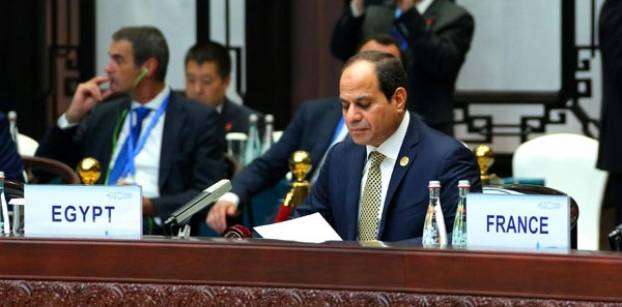Egypt's Sisi approves $243.8 million loan from Arab Monetary Fund

Egypt's President Abdel Fattah al-Sisi during one of the sesssions of the G20 Summit in China, Sept. 2016 - State Television
CAIRO, Sept (Aswat Masriya) - Egypt's President Abdel Fattah al-Sisi approved on Thursday a loan from the Arab Monetary Fund (AMF) worth $243.78 amid a wide range of economic reforms intended to cut spending and mitigate the effects of a weakening currency.
The president's decision was published in the state's official newspaper on Thursday.
The parliament had approved the loan agreement in May.
The AMF is a regional Arab organisation founded in 1976 with 22 member states.
The Egyptian government requested the loan last November with the aim of financing the budget deficit during fiscal year 2015/2016.
The loan is to be paid over a period of up to three years, distributed over four equal installments, according to the agreement. The first installment is due 18 months after the receipt of the loan.
Earlier in August, Egypt reached staff-level agreement with the International Monetary Fund (IMF) on a $12 billion three-year loan programme to help plug a funding gap.
In the meantime, the government has pushed through some reforms including spending cuts and the introduction of the value added tax which has been recently approved by the parliament.
The central bank had devalued the Egyptian pound by about 14 percent in March. Despite the devaluation, the pound has been trading on the black market at a significant discount to its official rate against the dollar, prompting forecasts of another devaluation.
Egypt is also in "advanced talks" with Saudi Arabia to secure a new deposit worth $2-3 billion, Reuters reported on Thursday. The deposit under negotiation is part of about $6 billion required in bilateral financing ahead of the IMF deal.
The economy has been struggling since a mass uprising in 2011 ushered in political instability that drove away tourists and foreign investors, both major earners of foreign currency. The turmoil has seen foreign reserves more than halve from some $36 billion before the uprising to $16.564 in August.









facebook comments